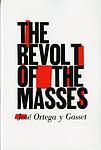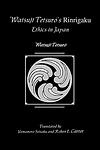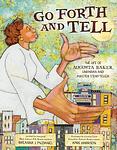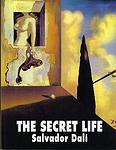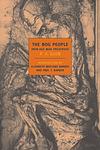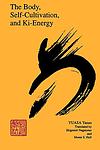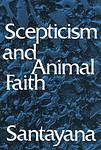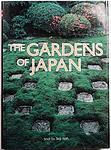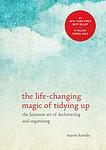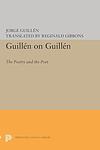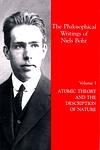The Greatest Danish, Japanese, Spanish "Nonfiction" Books Since 1900
Click to learn how this list is calculated.
This list represents a comprehensive and trusted collection of the greatest books. Developed through a specialized algorithm, it brings together 305 'best of' book lists to form a definitive guide to the world's most acclaimed books. For those interested in how these books are chosen, additional details can be found on the rankings page.
Genres
Countries
Date Range
Reading Statistics
Click the button below to see how many of these books you've read!
Download
If you're interested in downloading this list as a CSV file for use in a spreadsheet application, you can easily do so by clicking the button below. Please note that to ensure a manageable file size and faster download, the CSV will include details for only the first 500 books.
Download-
1. Out of Africa by Isak Dinesen
The book is a memoir that recounts the author's experiences and observations living in Kenya, then British East Africa, from 1914 to 1931. It is a lyrical meditation on her life amongst the diverse cultures and wildlife of Africa. The author shares her trials and tribulations of running a coffee plantation, her deep respect for the people and land of Africa, and her intimate understanding of the subtle nuances of African culture and society.
The 326th Greatest Book of All Time -
2. The Revolt of the Masses by José Ortega y Gasset
"The Revolt of the Masses" is a philosophical work that discusses the rise of the "mass man" and the potential danger this presents to society. The author argues that the mass man, characterized by his lack of individuality and rejection of higher values, is a product of modern society and its emphasis on equality. He believes that this mass man, who is more concerned with his rights than his responsibilities, threatens to undermine the very foundations of society, leading to potential chaos and instability. The book serves as a warning and a call for a return to individual responsibility and respect for higher values.
The 2441st Greatest Book of All Time -
3. Journey to the Alcarria by Camilo José Cela
"Journey to the Alcarria" is a travel literature piece that takes the reader on a journey through the Alcarria region in Spain. The protagonist, a solitary traveler, explores the landscape, culture, and people of this region, offering detailed descriptions and observations. The narrative captures the essence of Spain's post-war period, revealing the harsh realities of rural life and the resilience of its people. The book is both a physical journey through a specific place and a metaphorical journey into the human condition.
The 2443rd Greatest Book of All Time -
4. Mortal y rosa by Francisco Umbral
"Mortal y Rosa" is a heartbreaking and poignant narrative about a father's grieving process after the loss of his young son. The novel is a profound exploration of death, love, and loss, with the author using beautiful, poetic language to express his deep sorrow and pain. It is not just a lamentation, but also a reflection on life, childhood, and the fleeting nature of time. The book is a testament to the power of words in expressing the inexpressible and a moving tribute to a life cut tragically short.
The 2671st Greatest Book of All Time -
5. Greguerias by Ramón Gómez de la Serna
The book is a collection of witty, poetic, and often surreal aphorisms and reflections that blend humor, irony, and keen observation to capture the essence of everyday objects and experiences in a unique and thought-provoking way. These brief, imaginative musings offer a window into the author's playful mind, as he transforms the mundane into the extraordinary with his inventive use of language and metaphor. The work is a testament to the author's innovative spirit and his ability to see the world through a lens of whimsical creativity.
The 2942nd Greatest Book of All Time -
6. Early Spring by Tove Ditlevsen
"Early Spring" is a poignant autobiographical account of a young girl's coming of age in a working-class neighborhood of Copenhagen during the 1920s and 1930s. The narrative delves into the complexities of her family life, her struggles with identity and self-worth, and her passionate pursuit of writing as a means of escape and self-expression. The book captures the emotional landscape of the protagonist as she navigates the challenges of adolescence, the pressures of societal expectations, and her own burgeoning literary ambitions, all set against the backdrop of a changing Denmark. Through her introspective and lyrical prose, the story offers a deeply personal exploration of growth, resilience, and the relentless pursuit of one's dreams amidst adversity.
The 3462nd Greatest Book of All Time -
7. The Battle with the Slum by Jacob A. Riis
"The Battle with the Slum" is a historical documentation of the living conditions in the slums of New York City during the late 19th and early 20th century. The author, a social reformer and journalist, provides a detailed account of the overcrowded and unsanitary conditions that the city's poor were subjected to. The book also highlights the efforts of the government and philanthropists to improve these conditions and eradicate the slums, emphasizing the importance of housing reform and social welfare in urban development.
The 3462nd Greatest Book of All Time -
8. Dependency by Tove Ditlevsen
"Dependency" is the harrowing autobiographical account of a woman's struggle with addiction and the complexities of her personal life in mid-20th-century Copenhagen. Through a raw and intimate narrative, the book explores the protagonist's turbulent relationships, her quest for love and artistic recognition, and her descent into drug dependency. The memoir provides a candid look at the cycles of abuse and recovery, painting a poignant portrait of a woman grappling with her inner demons and societal expectations in a time when such topics were often taboo.
The 4128th Greatest Book of All Time -
9. The Copenhagen Trilogy: Childhood; Youth; Dependency by Tove Irma Margit Ditlevsen, Tiina Nunnally, Michael Favala Goldman
"The Copenhagen Trilogy" is a collection of three autobiographical novels by Tove Ditlevsen, chronicling her life from childhood to adulthood in Copenhagen. The first book, "Childhood," explores Ditlevsen's difficult upbringing in a working-class family, while "Youth" delves into her teenage years and early adulthood, including her struggles with addiction and mental illness. The final book, "Dependency," examines Ditlevsen's relationships and her battle with addiction, culminating in her eventual recovery. Through her candid and introspective writing, Ditlevsen offers a poignant and powerful portrayal of the human experience.
The 4151st Greatest Book of All Time -
10. Watsuji Tetsuro's Rinrigaku by Watsuji Tetsuro
"Watsuji Tetsuro's Rinrigaku" explores the intricate nature of ethics from a distinctly Japanese perspective, emphasizing the interconnectedness of individual and social morality. The book delves into the concept of 'betweenness' as a fundamental structure of human existence, arguing that ethical relations are inherently tied to the spatial and temporal contexts within which individuals live. This work critically examines Western ethical theories, proposing a communal and geographical approach to understanding human relations, and offers a comprehensive framework for considering moral decisions within the collective fabric of society.
The 4688th Greatest Book of All Time -
11. An Inquiry Into The Good by Nishida Kitarō
"An Inquiry into the Good" explores the philosophical concept of 'good' through an examination of reality and experience. The author integrates Western philosophical approaches with Eastern thought, particularly Zen Buddhism, to delve into topics such as pure experience, intuition, and the unity of consciousness. The work seeks to establish a foundation for understanding reality that transcends traditional dualities such as subject-object and ideal-real, proposing instead a notion of reality that is dynamic and continuously self-creating. This philosophical inquiry aims to articulate a comprehensive worldview that harmonizes ethical, metaphysical, and epistemological perspectives.
The 4688th Greatest Book of All Time -
12. An Introduction To Zen Buddhism by D.T. Suzuki
This book serves as a concise primer on Zen Buddhism, exploring its philosophical underpinnings and its practice. It delves into the history of Zen and its roots in the teachings of the Buddha and subsequent development in China and Japan. The text elucidates key concepts such as satori (enlightenment), the importance of meditation, and the use of koans (paradoxical anecdotes or riddles) in training the mind to transcend dualistic thinking. Aimed at Western readers, the book also discusses the potential of Zen to influence modern life and thought, providing a thoughtful introduction to those seeking spiritual insight and a deeper understanding of Eastern philosophy.
The 5517th Greatest Book of All Time -
13. The Master Of Go by Yasunari Kawabata
The book is a thoughtful reflection on the changing face of Japanese culture, told through the lens of a professional Go match between an aging master, representing the old guard and traditional values, and his young, innovative challenger who embodies the new ways. As the intense match unfolds, it becomes more than just a game; it is a poignant exploration of tradition versus progress, the individual versus society, and the tension between the spiritual purity of the art and the commercialism of modern times. The narrative, based on a real-life event, delves deep into the psychology of its characters and the strategic intricacies of Go, offering a subtle yet profound meditation on the nature of competition and the end of an era.
The 5517th Greatest Book of All Time -
14. The Secret Life Of Salvador Dali by Salvador Dali
"The Secret Life of Salvador Dalí" is an autobiography that offers an intriguing glimpse into the mind and life of the renowned surrealist artist. Written by Dalí himself, the book explores his early years, his rise to fame, and the development of his eccentric and flamboyant persona. Through vivid, often bizarre anecdotes and reflections, Dalí shares his thoughts on art, his obsessions, and his relationships with other famous figures of the 20th century. The narrative is characterized by its imaginative prose and the artist’s characteristic blend of arrogance and insight, providing a unique perspective on his creative genius and complex personality.
The 5517th Greatest Book of All Time -
15. The Bog People by P.V. Glob
"The Bog People" explores the fascinating archaeological discoveries of remarkably preserved human bodies found in the peat bogs of Northern Europe. Written by an esteemed archaeologist, the book delves into the Iron Age context of these finds, examining the clothing, artifacts, and ritualistic evidence surrounding the bodies. The author offers insights into the possible cultural and religious reasons behind the bog burials, suggesting that these were not merely accidental deaths but rather deliberate deposits, possibly sacrifices. Rich in detail and engagingly written, the book provides a window into a mysterious past where life, death, and belief systems intertwine in the damp moors of ancient Europe.
The 5517th Greatest Book of All Time -
16. Hiroshima Notes by Kenzaburō Ōe
"Hiroshima Notes" is a poignant collection of essays that delve into the aftermath of the atomic bombing of Hiroshima, exploring the enduring impact on the survivors and the city itself. The author, through a series of visits to Hiroshima in the 1960s, reflects on the moral and ethical implications of nuclear warfare, the resilience of the human spirit, and the responsibilities of humanity. Through interviews with survivors and thoughtful contemplation, the book provides a deep and multifaceted perspective on suffering, healing, and the quest for peace in the shadow of one of history's most devastating events.
The 5517th Greatest Book of All Time -
17. The Body by Yasuo Yuasa
"The Body" explores the intricate relationship between the mind and body from the perspective of Eastern philosophies and medicine, particularly focusing on Japanese thought. The book delves into how cultural differences between the East and West influence the understanding and treatment of the body. It discusses the historical and philosophical evolution of body concepts in Japan, integrating theories from Western psychoanalysis and philosophy to challenge the often dualistic approach seen in Western thought. The author proposes a more holistic, integrated view of the body-mind connection, emphasizing the importance of understanding this relationship in the context of human health and well-being.
The 5654th Greatest Book of All Time -
18. Scepticism and Animal Faith by George Santayana
"Scepticism and Animal Faith" is a philosophical work that presents the idea that knowledge is not found through evidence or reason, but through animal faith, a term referring to instinctive beliefs. The book delves into the nature of perception and consciousness, and argues that all human knowledge is grounded in unproven preconceptions. The author suggests that to understand the world, humans must first acknowledge their own preconceived notions and biases, and then attempt to understand the world through a lens of skepticism.
The 5738th Greatest Book of All Time -
19. My Last Sigh by Luis Buñuel
"My Last Sigh" is an autobiography that offers a candid and vivid account of the life and career of one of cinema's most groundbreaking and influential directors. The book delves into his early years in Spain, his deep friendships with prominent artists and intellectuals, and his experiences in the surrealist movement. It also explores his creative process, the making of his major films, and his philosophical and personal reflections. Rich with anecdotes and insights, the memoir provides a unique window into the artistic, social, and political climates of his times, revealing the complex and often contradictory nature of a fiercely original filmmaker.
The 6224th Greatest Book of All Time -
20. The Gardens Of Japan by Teiji Itoh
"The Gardens of Japan" explores the art and aesthetics of Japanese gardens, tracing their development from ancient times to the modern era. The book delves into various garden styles, from the serene rock gardens of Zen Buddhism to the ornate tea gardens and expansive stroll gardens. Richly illustrated and detailed, it examines the philosophical and cultural underpinnings that have shaped garden design in Japan, highlighting the intricate interplay of nature, spirituality, and art. The author provides insights into the symbolic elements of these gardens, their use of space and natural materials, and the meticulous care that goes into their creation and maintenance, offering readers a deep appreciation of this enduring art form.
The 6293rd Greatest Book of All Time -
21. The Life Changing Magic Of Tidying Up by Marie Kondo
"The Life Changing Magic of Tidying Up" is a practical guide that offers a fresh perspective on decluttering and organizing one's home. The author introduces the KonMari Method, a systematic approach to tidying that encourages individuals to keep only items that truly spark joy in their lives. Through insightful anecdotes and step-by-step instructions, the book provides valuable insights on how tidying can lead to a transformative and joyful lifestyle.
The 6431st Greatest Book of All Time -
22. Guillén On Guillén by Jorge Guillén
"Guillén on Guillén" is a reflective literary work in which the poet himself delves into the essence of his own poetry, offering readers an intimate exploration of his creative process and the thematic underpinnings of his work. Through a series of essays and commentaries, the poet provides insight into his artistic vision, the philosophical and aesthetic considerations that shape his verse, and the personal experiences that inform his poetic expression. This self-analysis serves as a valuable resource for understanding the poet's contributions to literature and the broader context of 20th-century poetic movements.
The 7168th Greatest Book of All Time -
23. Atomic Theory and the Description of Nature by Niels Bohr
This book is a collection of four lectures given by the author, a renowned physicist, on the philosophical implications of quantum mechanics. He discusses the fundamental principles of quantum theory, its philosophical implications, and its impact on the understanding of nature, arguing that the atomic theory has fundamentally changed our perception of reality. The book also delves into the author's belief that a complementary perspective, which involves both a particle view and a wave view, is necessary to fully understand quantum phenomena.
The 7960th Greatest Book of All Time -
24. Discussion with Einstein on Epistemology by Niels Bohr
This book is a detailed account of the intellectual exchange between two of the greatest physicists of the 20th century. It explores their contrasting views on quantum theory and the philosophical implications of their work. The book provides a deep insight into their debates on the fundamental nature of reality, the role of the observer in physics, and the limits of human knowledge. It's a profound exploration of the intersection between physics and philosophy.
The 7960th Greatest Book of All Time -
25. Space In Motion by Juan Goytisolo
"Space in Motion" is a reflective exploration of the concept of space as it relates to human experience, culture, and history. The book delves into the ways in which space is perceived, constructed, and navigated, offering a philosophical and literary examination of the subject. The author weaves together a tapestry of ideas, drawing from various disciplines and perspectives, to challenge the reader's understanding of space beyond its physical dimensions, considering its impact on identity, memory, and our place in the world. Through a blend of narrative and critical thought, the work invites contemplation on the fluidity and dynamism of space in our lives.
The 8480th Greatest Book of All Time
Reading Statistics
Click the button below to see how many of these books you've read!
Download
If you're interested in downloading this list as a CSV file for use in a spreadsheet application, you can easily do so by clicking the button below. Please note that to ensure a manageable file size and faster download, the CSV will include details for only the first 500 books.
Download
